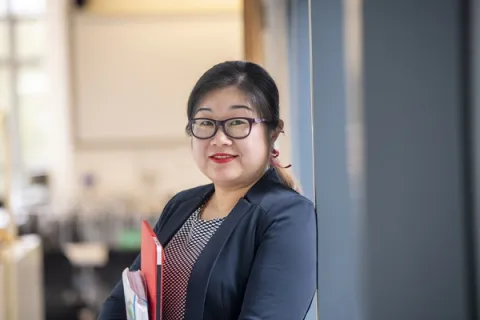Project overview
Museums are places where visitors can learn, participate in activities, and share ideas (Devine and Tarr, 2019). As a key part of the creative industries, museums contributed 6% (£115.9 billion) to the overall UK economy in 2019 (Higginbotham, 2021).
The COVID-19 pandemic had significant impacts on Museums’ operations and visitors’ experience. Many museums transferred their service to a digital/virtual platform (e.g., website or mobile apps) and trailed several innovative virtual interactions by using a range of new technologies (Katifori et al., 2020).
However, Klimaszewski (2015) highlights the current lack of understanding about the users of digital collections created Museums and pointing out that this ‘limited evidential understanding of user behaviour and information needs’ (p. 363) is the basis on which pro-convergence funders and policymakers are drawing their conclusions. This is supported by our recent interviews with seven museum managers in July 2022, which echoes the importance of understanding visitors' perceptions, expectations, and experiences with digital and virtual interactions at museums, so as to develop a successful digital strategy.
Thus, this study aims to employ a ‘visitor-oriented’ approach to 1) explore what is the impact of COVID-19 on museum visitors’ perceptions, behaviours, and experience with Museums, and their attitudes/experience with applications of technology/digitisation in the Museums during and after COVID in the UK; and 2) how to develop museum experience design insights to improve visitors’ museum experience via digital technologies.
The findings of this research will assist museum managers and policymakers in better incorporating digital technologies to enhance the visitor experience in museums.
The COVID-19 pandemic had significant impacts on Museums’ operations and visitors’ experience. Many museums transferred their service to a digital/virtual platform (e.g., website or mobile apps) and trailed several innovative virtual interactions by using a range of new technologies (Katifori et al., 2020).
However, Klimaszewski (2015) highlights the current lack of understanding about the users of digital collections created Museums and pointing out that this ‘limited evidential understanding of user behaviour and information needs’ (p. 363) is the basis on which pro-convergence funders and policymakers are drawing their conclusions. This is supported by our recent interviews with seven museum managers in July 2022, which echoes the importance of understanding visitors' perceptions, expectations, and experiences with digital and virtual interactions at museums, so as to develop a successful digital strategy.
Thus, this study aims to employ a ‘visitor-oriented’ approach to 1) explore what is the impact of COVID-19 on museum visitors’ perceptions, behaviours, and experience with Museums, and their attitudes/experience with applications of technology/digitisation in the Museums during and after COVID in the UK; and 2) how to develop museum experience design insights to improve visitors’ museum experience via digital technologies.
The findings of this research will assist museum managers and policymakers in better incorporating digital technologies to enhance the visitor experience in museums.


